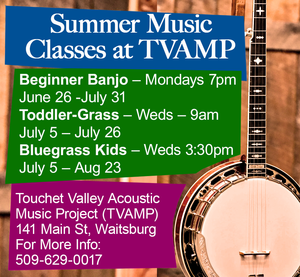The Tears of a (Real) Clown: All the Insane Clown Hysteria is Giving us a Bad Name
Listen, punks. You think you can slap on some makeup, pick up an ax and take down a profession? You think one rubber nose and a few prank phone calls can co-opt an art form? You think malice can triumph over joy in these colossal clown wars?
Bobo don’t think so.
Sure, you’ve had your little fun - scampering across social media, delighting local news producers with reports of scary clowns threatening schools and targeting children. But on Tuesday, Halloween will be over and you’ll probably crawl back into your shadowy bunkers and 11th-grade math classes. And then the real clowns will reclaim their place of honor, making fart jokes and balloon animals.
But first, a quibble from the clown community.
“The thing that upsets most of us the most is that people call those other folks clowns,” says Greg May, owner of the Center Ring Circus School in Columbia, Maryland. “If someone put on a white lab coat and went out to scare people, they wouldn’t say doctors are in the woods scaring people. I’m a trained circus clown. This is what I’ve trained to do. People who put on that makeup to scare people are not any more of a clown than I am a doctor.”
May’s degree, incidentally, comes from the Ringling Bros. Clown College. After graduating, he spent three years on tour, where he met his wife, who was one of the elephant riders. “Then we ran away from the circus to join a home,” he says.
Anyway, May says that this whole creepy clown thing is nothing new. Professional clowns suffered a double whammy in the 1980s, with the movies “Poltergeist” and Stephen King’s “It,” both of which featured deranged clowns. “And unfortunately, that scary clown thing that started then has continued to build to where people hear the word ‘clown’ now, that’s all they associate.”
For the record, King told Twitter followers last month to “cool the clown hysteria.” But by then, the damage was done, with a few scary sightings sparking numerous copycats, hordes of hoaxes and a tsunami-size overreaction. Don’t even get May started on elementary schools banning clown costumes on Halloween. This development alone could fill a river with rainbow-colored clown tears.
The perpetuation of scary clowns “just pollutes everything that we try to do,” May says. To the degree that many clowns don’t even use that word to describe themselves anymore. “They’ll just say ‘circus artist’ or ‘new Vaudeville entertainer,’ or ‘hire a juggler.’ Then they’ll go in and do the exact same funny shtick,” May says.
Mandy Dalton isn’t giving up on the word clown. That’s who she is. “I’m a clown without my makeup on,” she says. “A clown is what you do and what you are. I can no more change it than change the freckles on my face.”
Dalton has been a clown since the early 1980s. She spends three days a month at local children’s hospitals, helping very sick kids and their very worried parents smile for a few minutes. That’s why these ghoulish clown impersonators bother her so much.
“It’s another attempt to ruin something beautiful and innocent and lovely,” she says. “We do a lot of looking at each other in this society as ‘that group over there versus this group over there.’ What clowns are about is, ‘It’s us as human beings. We’re all the same, and believe it or not, there are some things we will all laugh at.’ “
It’s been a rough stretch for Dalton. Business is down, because people haven’t been so quick to hire professional clowns for birthday parties and community events. And at the public appearances she has made, “I’ve had some people get really aggressive with me,” she says. “That has been frightening.” She doesn’t want to say more out of fear of provoking an unhinged clown hater.
So this week, Dalton is shipping off to Europe for a six-week “mental hygiene break.” She’s hoping that by the time she gets back, the fear will have passed and the fun can resume. “I’m just out here trying to make people laugh,” she says.
Joseph Fera, a.k.a. Chuckles the Clown, is sure that will be the case. He’s been at this for 25 years and says that clown hysteria is cyclical, although this cycle seems more heightened than the others. He has two clown mentors in North Carolina who are considering giving up the business because of all the negativity. But Chuckles isn’t hanging up his hat.
“For professional clowns, it’s sad because it puts us in a bad light,” says Fera, of Poolesville, Maryland. “But I think it’s just going to be a phase. I would imagine after Halloween it will die down.”
You hear that, kids? Scram.
It’s time to let the pros get back to business. Chuckles would like to start.
“Let me leave you with one clown joke,” he says. “You know why cannibals don’t eat clowns? Cause they’re afraid they’ll taste funny.”
Ellen McCarthy is a feature writer for Style. She is the author of “The Real Thing: Lessons on Love and Life from a Wedding Reporter’s Notebook.”







Reader Comments(0)